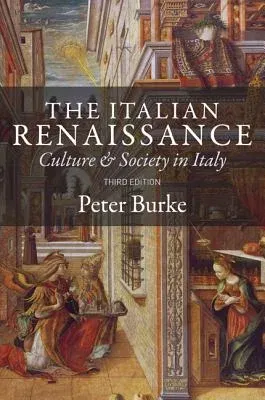Peter Burke
(Author)The Italian Renaissance: Culture and Society in Italy - Third EditionPaperback, 23 February 2014

Qty
1
Turbo
Ships in 2 - 3 days
In Stock
Free Delivery
Cash on Delivery
15 Days
Free Returns
Secure Checkout

Print Length
336 pages
Language
English
Publisher
Princeton University Press
Date Published
23 Feb 2014
ISBN-10
0691162409
ISBN-13
9780691162409
Description
Product Details
Author:
Book Format:
Paperback
Country of Origin:
US
Date Published:
23 February 2014
Dimensions:
22.61 x
15.24 x
2.54 cm
Genre:
Italy
ISBN-10:
0691162409
ISBN-13:
9780691162409
Language:
English
Location:
Princeton
Pages:
336
Publisher:
Weight:
521.63 gm